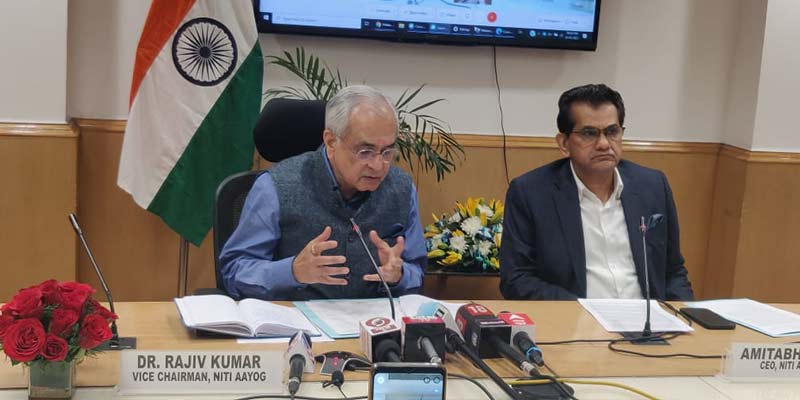- India
- Feb 20
- Mathew Gregory
6th Governing Council meeting of NITI Aayog
Prime Minister Narendra Modi chaired the sixth meeting of the Governing Council of NITI Aayog on 20th Feb via video conferencing.
Highlights
• The agenda of the meeting included
◦ deliberations on agriculture
◦ infrastructure
◦ manufacturing
◦ human resource development
◦ service delivery at grassroots level
◦ health and nutrition
• The sixth meeting witnessed the entry of Ladakh for the first time, in addition to the participation of Jammu and Kashmir as a UT.
• Prime Minister Narendra Modi stressed that the Centre and states should work together and make cooperative federalism more meaningful.
• He also urged to bring competitive, cooperative federalism not only among states but also among districts.
• Prime Minister said the Central Government has introduced Production-Linked Incentive, PLI schemes for various sectors which is an excellent opportunity to increase manufacturing in the country and states should also take full advantage of this scheme.
• He also announced that there would be a major increase in the economic resources of local bodies in the 15th Finance Commission.
• States and UTs mentioned efforts made to improve water accessibility, supply of quality and reliable power, internet connectivity, quality healthcare services, sustainable agricultural practices to mitigate the risks of climate change among other issues during the day-long meeting.
• Sustained effort of GoI has resulted in over 2.4 crore houses have been built in rural and urban India since 2014, over 3.5 lakh rural households have been connected with piped water connections in the last 18 months.
• Opening of bank accounts, increase in vaccination and health facilities, free electricity connection, free gas connection to empower the poor has reflected a phenomenal change in ordinary folks lives.
• The Governing Council presents a platform to discuss inter-sectoral, inter-departmental and federal issues.
• The Governing Council Meeting was attended by 26 Chief Ministers, three Lieutenant Governors and two Administrators.
• Apart from Union Ministers, who are Ex-Officio Members, and Special Invitees. NITI Aayog Vice Chairman, Members and CEO, Principal Secretary to the Prime Minister and other senior officers from PMO, Cabinet Secretary and Chief Secretaries of States and Union Territories also attended the meeting.
The Governing Council of NITI Aayog
National Institution for Transforming India or NITI Aayog was constituted on 1 January, 2015, to serve as the think tank of the Government of India with a Cabinet resolution. The Governing Council of NITI Aayog, comprising Chief Ministers of all the States and Union Territories with Legislatures and Lt. Governors of other Union Territories, came into effect on 16 February, 2015. The Prime Minister is its Chairman, comprises Chief Ministers of all States and Lt. Governors of Union Territories (UTs).
NITI Aayog is the premier policy ‘Think Tank’ of the Government of India, providing both directional and policy inputs. While designing strategic and long term policies and programmes for the Government of India, NITI Aayog also provides relevant technical advice to the Centre and States.
NITI Aayog has been mandated with fostering Cooperative Federalism through structured support initiatives and mechanisms with the States on a continuous basis, recognizing that strong States make a strong nation on the principles of ‘SabkaSaathi, Sabka Vikas, Sabka Vishwas’. It seeks to design and assist the implementation of strategic, long-term policy frameworks and programme initiatives, while monitoring their progress and efficacy. The Governing Council, which embodies these objectives of cooperative federalism, presents a platform to discuss inter-sectoral, inter-departmental and federal issues to accelerate the implementation of the national development agenda.
(The author is a trainer for Civil Services aspirants. The views expressed here are personal.)

